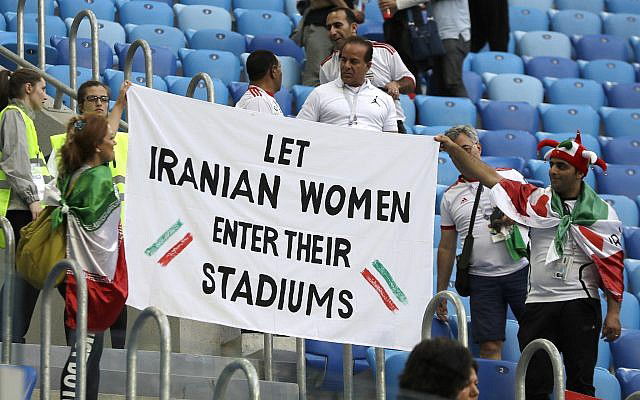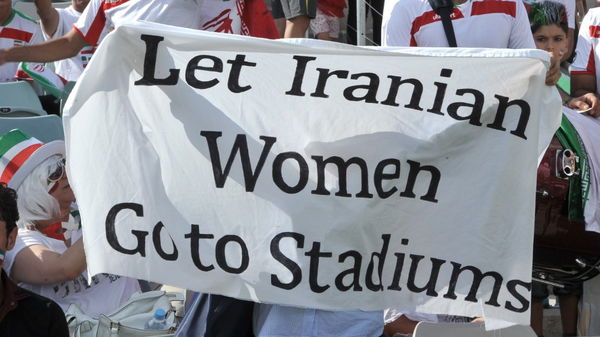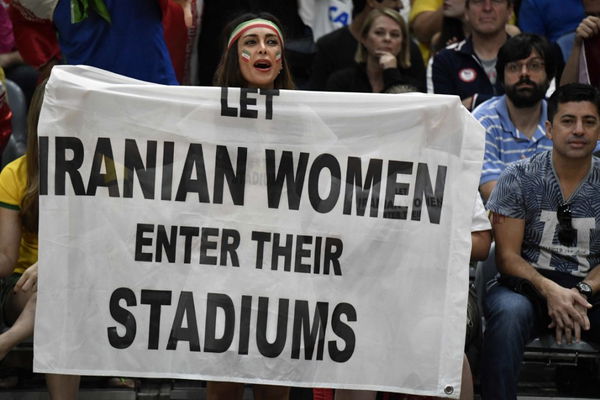

In a horrifying incident, a young woman self-immolated outside the public prosecutor’s office in Tehran. She was one of several Iranian women who were detained outside Iran’s Azadi football stadium.
Watch What’s Trending Now!
According to hospital authorities, “The 29-year-old is suffering from third-degree burns, and currently under life support.”
Meanwhile, speaking to Rokna, the victim’s sister said, “They detained my sister on March 12, 2019, when she tried to enter Azadi Stadium, and watch Tehran’s Esteqlal soccer club home match against the United Arab Emirates’ Al Ain, FC.”
ADVERTISEMENT
Rokna further reported that security forces arrested the woman, diagnosed with bipolar disorder and is under treatment. Security imprisoned the woman to the infamous Qarchak prison, in Varamin, located in the south of Tehran.

ADVERTISEMENT
The news agency continued, “At the time of the self-immolation, the official in charge of the prosecutor’s office told the girl that she faced a six-month sentence in jail. The girl protested but told that since the judge was on bereavement leave, a court would be held later to hear her protest.”
ADVERTISEMENT
The woman was so incensed that she poured gasoline on herself and set it alight before visiting the public prosecutor’s office.
Iran has long been in the news for its traditionalist views on women’s rights. In fact, it is the only country that bans women from sports stadiums. The unwritten law has been supported by religious conservatives in Iran since 1980. This was a year after the downfall of the pro-West monarch, Shah Mohammad Reza Pahlavi and the establishment of the Islamic Republic.
It is also worth noting that banning women from live football matches in Iranian stadiums is against regulations set by the International Football Federation (FIFA).
ADVERTISEMENT

ADVERTISEMENT
Article 4 of FIFA’s regulations stipulates, “Discrimination of any kind against a country, private person or group of people on account of race, skin color, ethnic, national or social origin, gender, disability, language, religion, political opinion or any other opinion, wealth, birth or any other status, sexual orientation or any other reason is strictly prohibited and punishable by suspension or expulsion.”
FIFA has given the Islamic Republic until October to pave the way for women to freely enter sports arenas and watch men’s live soccer matches. Otherwise, Iran could face removal from all international soccer events.
The hashtag #BanIRSportsFederations has been used more than 60,000 times on Twitter in just 24 hours to call for a ban as a result of “state interference in sports”.
ADVERTISEMENT
Others have pointed to the case of judoka Saeid Mollaei, who said he feared for his safety after he was told by Iranian authorities to pull out of the 2019 Judo World Championships in Japan, to avoid the prospect of facing an Israeli athlete later in the competition.
Iran does not recognise the state of Israel and forbids its athletes from competing against Israelis at international sports events.
Mollaei said he was told to withdraw from his match against Russia’s Olympic champion Khasan Khalmurzaev to avoid the prospect of facing Israel’s Sagi Muki later in the 2019 Judo World Championships. He stayed in the competition, but lost in the semi-final. Muki, who won the title, has now replaced Mollaei at the top of the world rankings for the men’s under-81kg division.
ADVERTISEMENT
ADVERTISEMENT
ADVERTISEMENT
ADVERTISEMENT

